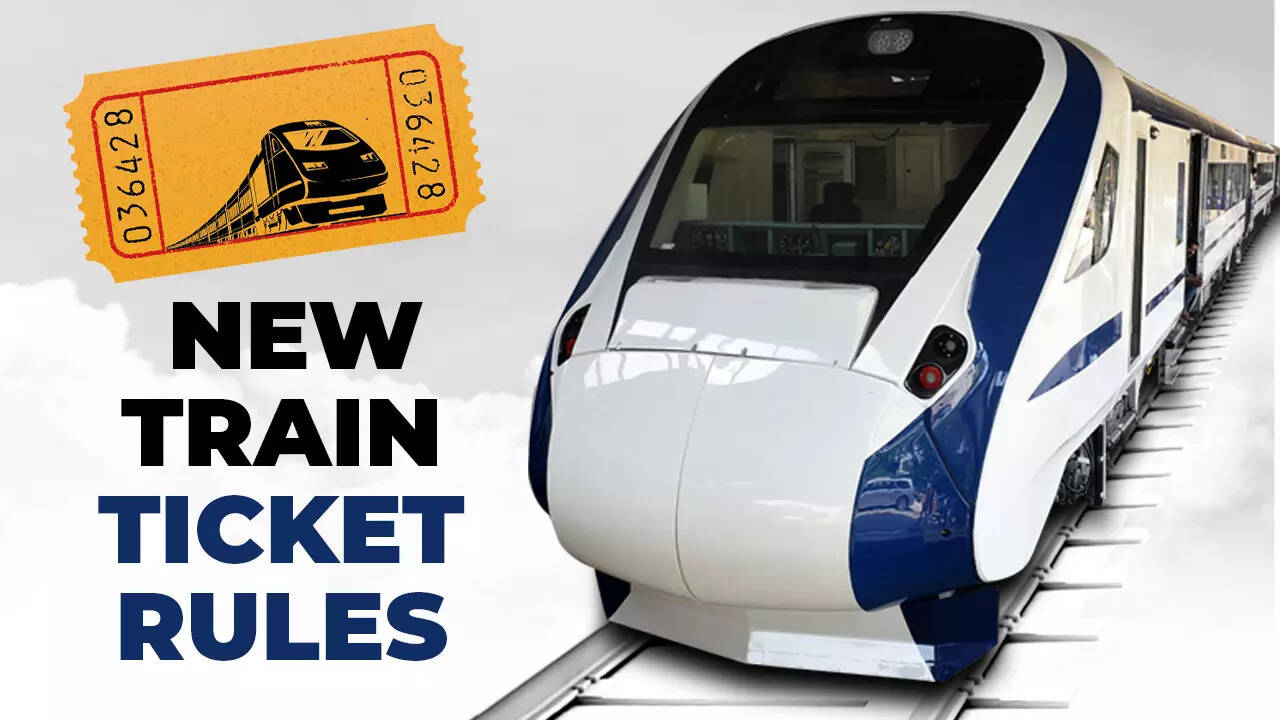Indian Railways will now finalise reservation charts eight hours before scheduled train departure instead of the current four-hour timeline. The revised policy, to be rolled out in phases, is expected to benefit waitlisted travellers with earlier status updates and more time to make alternate arrangements. The initiative comes alongside a broader upgrade of the reservation system to handle higher booking volumes and streamline user experience across platforms.
The change addresses a long-standing concern for passengers—particularly those travelling from satellite towns or remote locations—who often remain uncertain about ticket confirmation until the last minute. By offering a clearer view of berth allocation earlier, Indian Railways aims to reduce travel anxiety and allow for better planning. This is especially relevant for long-distance trains and routes with consistently high waitlists. For trains departing before 2 pm, the first reservation chart will now be released at 9 pm on the previous evening. The updated schedule allows passengers holding waitlisted or RAC (Reservation Against Cancellation) tickets to receive earlier clarity, improving their chances to rebook on alternative trains or choose different modes of transport. According to officials, the change was proposed by the Railway Board and has received administrative approval for phased implementation to avoid any technical or operational disruption.
Railway authorities say this reform is part of a wider digital transition aimed at modernising the country’s passenger services. At the core of this transition is a full-scale revamp of the Passenger Reservation System (PRS), scheduled for rollout by December. Developed by the Centre for Railway Information Systems (CRIS), the new PRS promises to multiply both ticket booking and inquiry capacities manifold. Currently, the PRS can manage about 32,000 bookings per minute. Once upgraded, the system will be capable of processing over 1.5 lakh ticket bookings per minute—a nearly fivefold increase. Similarly, the number of enquiries handled per minute will jump tenfold, from 4 lakh to more than 40 lakh. Officials explained that the new system has been designed to reduce lags, eliminate booking failures, and make high-demand windows like Tatkal more transparent and accessible.
The new PRS platform will also offer a more intuitive booking experience with multilingual support, enhanced mobile app features, a fare calendar view, and the ability for users to express seat preferences during ticket purchase. This user-first approach is expected t bring greater equity and efficiency to India’s heavily used rail network, especially during peak travel seasons. In a related development, starting July 1, authentication will become mandatory for all Tatkal ticket bookings made via the IRCTC website and mobile application. The move is aimed at reducing ticket scalping and automated misuse by unauthorised agents. Only users who complete verification will be able to book tickets under the high-demand Tatkal category, ensuring fairer access to urgent travel options.
Transport analysts have welcomed the government’s multi-pronged effort, stating that it brings much-needed clarity to an opaque reservation process. With more than 20 million passengers travelling daily on Indian Railways, timely information and platform reliability are crucial to smooth functioning. Experts also noted that early charting would ease congestion at ticket counters and help railway staff manage onboard logistics better. The psychological relief offered by earlier charting cannot be overstated. For families with young children, elderly passengers, or those managing long multi-modal journeys, knowing whether their travel plans are confirmed hours earlier creates a sense of preparedness and dignity. Additionally, early chart release reduces the chaos of last-minute changes at boarding stations and makes station management more predictable.
However, some officials acknowledge the challenges of implementing such a change across India’s vast and diverse railway network. The updated timelines must synchronise with station-level operations, coach positioning, and automated berth allotment protocols. To this end, Indian Railways will adopt a gradual approach, starting with high-traffic zones before scaling up to nationwide coverage. Importantly, railway insiders have confirmed that the second reservation chart, which reflects last-minute changes like cancellations and Tatkal bookings, will continue to be prepared 30 minutes before train departure. This ensures flexibility for final adjustments while the main charting window is brought forward.
Digital infrastructure remains the backbone of these reforms. CRIS is reportedly working on backend systems that can handle real-time syncing of data across zones while maintaining high standards of security and uptime. Given that PRS also interfaces with multiple private and public platforms, ensuring interoperability without compromising speed is a critical engineering challenge. While the reform signals progress, civil society observers have cautioned that reforms must be paired with awareness campaigns. Many travellers, especially those from non-digital or older demographic segments, rely on physical charts displayed at stations. Ensuring that they are informed about new timelines through announcements, SMS alerts, and station displays will be key to a smooth transition.
As Indian Railways modernises its backbone services, such steps reflect an intention to improve not only operational metrics but also public trust. Empowering passengers with better information, reducing last-minute surprises, and promoting fairness in bookings are all integral to creating a reliable, inclusive, and sustainable public transport ecosystem. These upgrades are not merely technical—they are structural shifts towards making the railway experience equitable and future-ready. Whether it’s booking a seat or confirming a waitlisted ticket, India’s passengers deserve transparency and time to make their journeys work.
Also Read : Maharashtra Targets 30 Percent EV Adoption Across State by 2030


